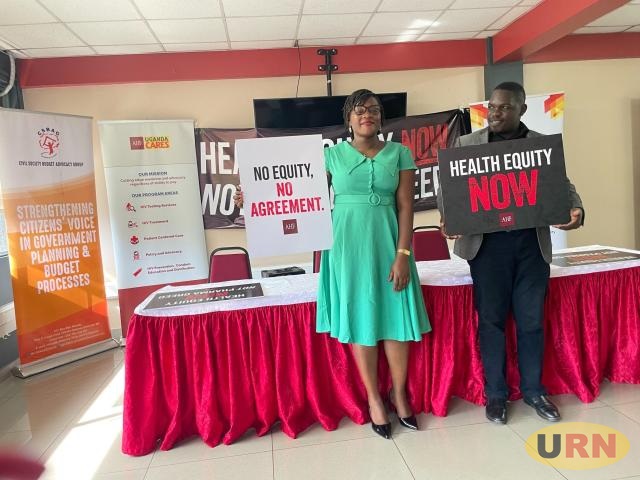
Kampala, Uganda | THE INDEPENDENT | Ugandan access to health advocates have joined their global south counterparts urging for equity in the next global pandemic agreement. Apart from equity, they say the agreement should ensure accountability and financing for pandemic security.
The call by members from various health-related civil society in Uganda comes as WHO Member States negotiating the Pandemic Agreement to reform global pandemic prevention, preparedness, and response meet for the latest round of negotiations.
Intergovernmental Negotiating Body reconvened for its last session on Monday. The session which ends on 9th May is expected to come up with a decision, with a decision on the treaty’s adoption.
Ugandan advocates are also pushing for sustainable health and community financing as well as continuous disease surveillance and the provision of community health services.
Uganda Cares National Medical Director, Dr. Augustine Lubanga, told journalists in Kampala that they are concerned about the current gaps in the draft.
“Our collective advocacy aims to ensure that the agreement truly serves the interests of all nations, particularly the most vulnerable, and prioritizes human lives over corporate profits,” he added.
According to Lubanga, if the agreement is endorsed in its current form, it will lack accountability and it will not have powers to ensure fair access to health resources during pandemics, and the protection of drug companies.
Lubanga adds that the current draft of the agreement is a pale imitation of what needs to be done, full of empty promises. He also states that such an agreement will cause Africa to suffer the most, as was the case with the Covid-19 pandemic.
Advocates from developing countries in Uganda have been pushing for an agreement that ensures Vaccine equity in future pandemics. They have urged the WHO assembly to adopt the proposed Pathogen Access and Benefit-Sharing (PABS) System within the draft global pandemic treaty currently being negotiated.
The ongoing Intergovernmental Negotiating Body (INB9) should finalise the daft in areas like
adequate financing for pandemic preparedness, equitable access to medical countermeasures needed during pandemics, and health workforce strengthening.
Those issues should form part of the deliberations of the Seventy-seventh World Health Assembly to be held on 27 May 2024, at which Member States are scheduled to consider the proposed text of the world’s first pandemic agreement for adoption.
WHO Director-General, Dr Tedros Adhanom Ghebreyesus last month highlighted the importance of the the pandemic agreement. He said future generations must be protected from suffering similar to what countries endured through the COVID-19 pandemic.
The Director for Public Health at the Ministry of Health, Dr. Daniel Kyabayinze revealed that currently there is a contention on the proposed Pathogen Access and Benefit-Sharing (PABS) System, research and development, and technology transfer.
He adds that there is a consensus is being generated to ensure a win for Africa and by extension a win for global health security.
Kyabayinze reveled that African countries are negotiating as a bloc, adding that they are pushing for equity in the pandemic response and should be legally binding.
He adds that as a bloc, they have also taken a stand on some key issues, like having multilateral pathogen access to assist both users and providers, as well as access to pandemic-related health products and also streamlining funding.
Pathogen sharing is critical during an outbreak of an emerging disease: development of diagnostic tests, vaccines, or a therapeutic. It typically requires access to information and/or physical samples on the pathogen that it targets. Pathogen sharing currently occurs through dozens of formal and informal networks, where timely access is not always guaranteed for everyone. That should be the key component of the agreement.
*****
URN
 The Independent Uganda: You get the Truth we Pay the Price
The Independent Uganda: You get the Truth we Pay the Price





